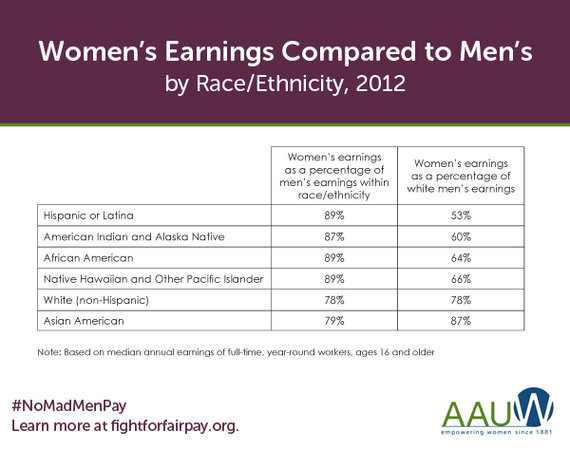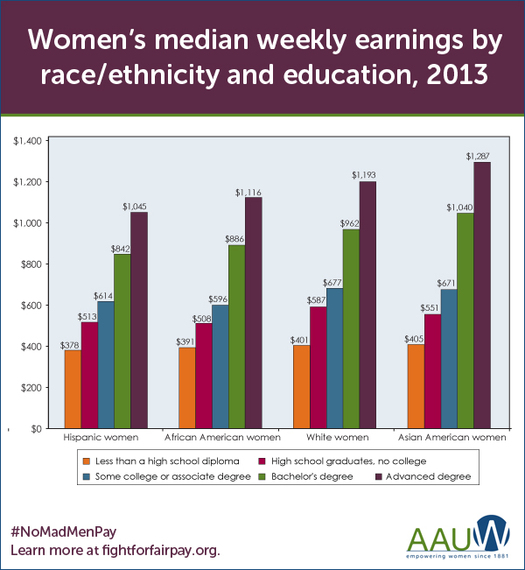
Race and ethnicity have always created a dividing line in the United States, and it's no different with the gender pay gap. The pay gap affects all women, but it doesn't affect all women equally. The latest edition of our research report, "The Simple Truth about the Gender Pay Gap," presents the facts about the pay gap between women and men, showing how race and ethnicity, as well as gender, affect pay.
Asian-American and white women had higher weekly take-home pay than African-American and Hispanic or Latina women did in 2012, and the pattern was similar for men in these groups. The gender pay gap was smallest within the African-American, Hispanic/Latina and Native Hawaiian/other Pacific Islander full-time workforce. But compared with white men (the largest group in the workforce), African-American and Hispanic/Latina women fare poorly. Hispanic or Latina women are paid 89 percent of what Hispanic or Latino men are paid, and only 53 percent of what white men are paid. African-American women are paid 89 percent of what African-American men are paid, and that number drops to 64 percent in comparison with white men.
So, you might ask (and Essence magazine did), What causes African-American and Hispanic women to be paid less than white and Asian women?
Education is part of the reason. African-American women are less likely to graduate from high school or college than their white peers. Lower graduation rates mean that many African-American and Hispanic/Latina young people enter the workforce with one hand tied behind their backs.
Still, while education improves take-home pay for everyone, African-American and Hispanic women tend to be paid less than their white peers even when they have the same educational background. This tells us that educational background isn't the whole story. Another possible explanation is discrimination, whether overt or implicit. Both forms of bias can affect take-home pay. In some ways, implicit bias, or bias that you are not aware of, can be especially problematic -- you can learn to compensate for known biases, but you can't overcome a problem you're not aware of.
The gender pay gap affects all women, but for African-American and Hispanic/Latina women, it is a steeper climb. Luckily, there are actions you can take to help narrow the pay gap, especially for women of color.
Visit fightforfairpay.org to learn more about the gender pay gap, how it affects you, and what you can do to take action for equal pay.

